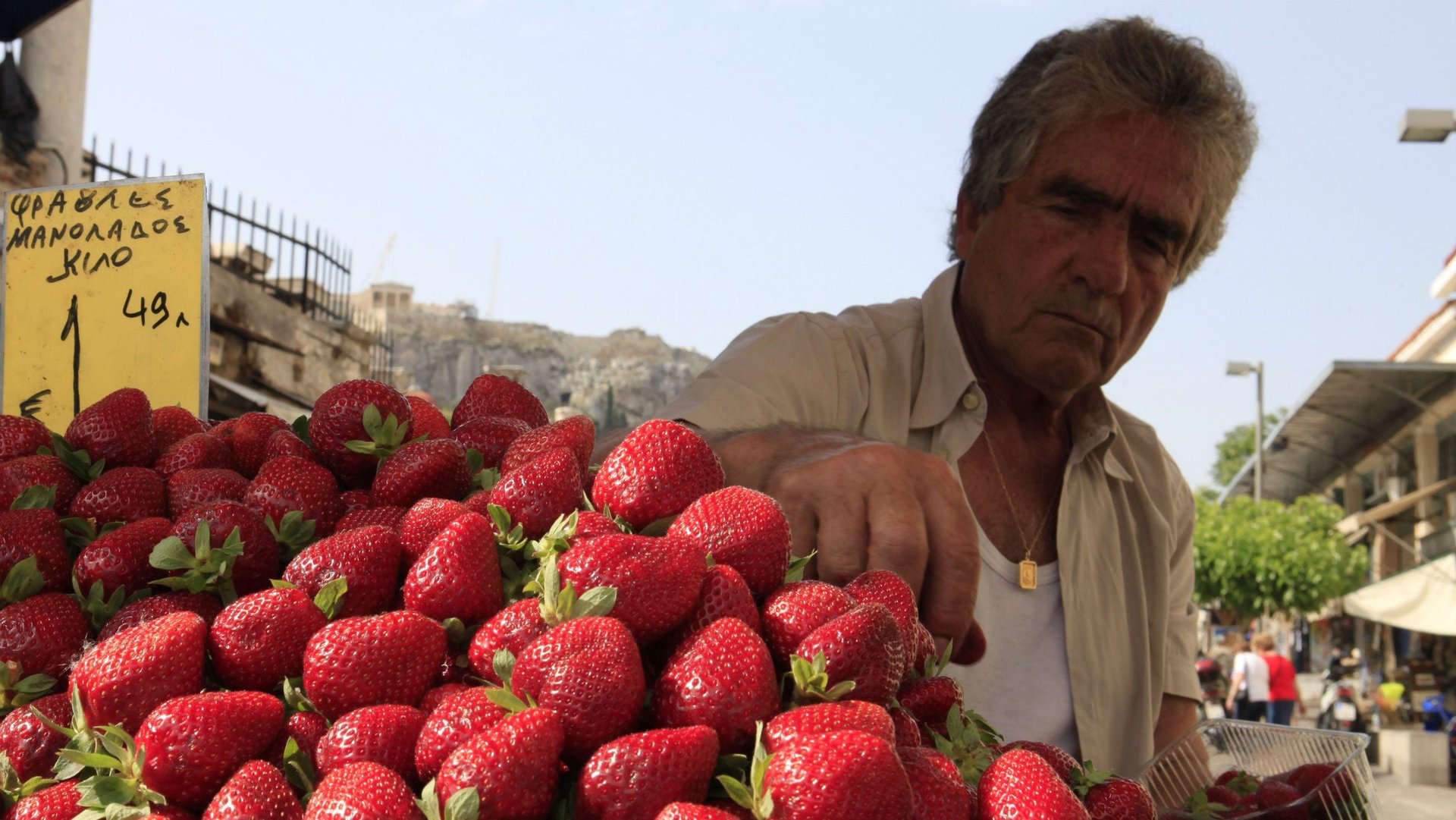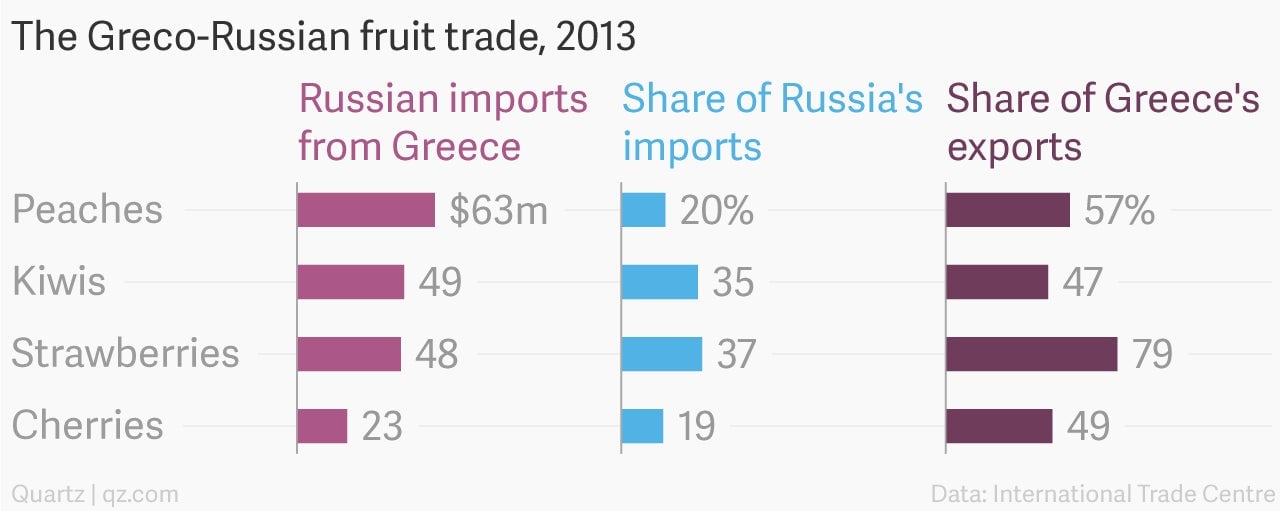On the Greek leader’s agenda in Moscow: debt, energy, and strawberries
The leaders of Greece and Russia are meeting in Moscow today, hoping for some fruitful discussions.


The leaders of Greece and Russia are meeting in Moscow today, hoping for some fruitful discussions.
Greek prime minister Alexis Tsipras will see his counterparts at the Kremlin for talks on “trade, economic and investment cooperation, cultural and humanitarian ties, as well as topical international issues,” according to Russian president Vladimir Putin’s schedule.
Against the backdrop of Greece’s severe cash crunch, there is talk of Athens turning to Moscow for billion-euro emergency loans and energy discounts, much to the chagrin of other EU states. But the most realistic breakthrough that Tsipras can achieve is less eye catching: a deal to sell Russia strawberries.
In August last year, Russia banned food imports from the EU, US, and others in retaliation for the financial sanctions imposed on it by those countries following the annexation of Crimea and violence in eastern Ukraine. The ban hit farmers in southern Europe hard, at a particularly bad time, and nowhere more so than in Greece. In the year before Russia’s embargo, some 60% of Greece’s peach exports went to Russia, accounting for 20% of Russia’s imports of the fruit. And the countries depend on each other for a large share of trade in other fruits, too:

Convincing Putin to lift the import ban, in part or in full, would give a timely—if small—boost to the Greek economy. As Tsipras struggles to keep left-wing deputies on his side during tricky negotiations with Greece’s creditors, bringing back this sort of concession from Moscow would play well. After all, some factions within his party tend to show more admiration for the Kremlin than for EU institutions in Brussels. And it would also bring relief to Russian shoppers, who have been contending with runaway food inflation as a result of the Kremlin’s embargo.
For Putin, Greece’s new government is an important ally in the fight to stop the spread of sanctions that are battering the Russian economy. Cementing its loyalty would broaden the burgeoning pro-Moscow bloc in Europe, which is predominantly of a right-wing persuasion, including parties like Jobbik in Hungary and the National Front in France.
Russia’s economic malaise makes direct financial assistance for Greece harder than it was when Moscow wrote Cyprus a check in 2011, temporarily delaying that other debt-laden Mediterranean country’s eventual bailout. Reversing course on the food-import ban wouldn’t entail any extra costs. There are potential legal snags with the WTO if Russia were to try to selectively lift its ban on fruit imports from Greece alone, but when has Putin let something like that stop him?